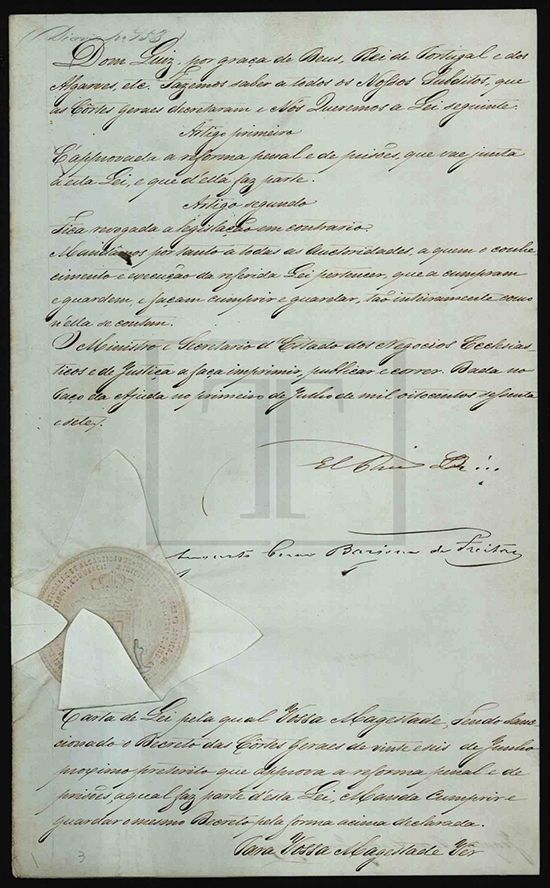
The last execution of a condemned to the death penalty took place on April 22, 1846, in Lagos, but capital punishment was only officially abolished in Portugal in 1867, a date on which 150 years are about to pass.
Taking into account this important date, and because Portugal was the first country in the world to abolish the death penalty for civil crimes, the Municipality of Lagos decided to join the Committee on Constitutional Affairs, Rights, Freedoms and Guarantees of the Assembly of the Republic , promoting a public session in this Algarve city, on the 30th of June.
According to the municipality, the session's program "intends to promote a reflection on the historical, cultural and social context of the period in question, at local, national and international levels", as well as on "the actual legislative evolution that has taken place since the last execution in Lagos until abolition itself, and whose principles were disseminated throughout Europe and other continents of the world».
The abolition of capital punishment for civil crimes was proposed by the then Minister of Justice, Manuel Baptista, on 1 July 1867 and approved by the Chamber of Peers of the Kingdom, during the reign of D. Luís.
In 1772, the last sentence to the death penalty of a woman had occurred. Thus, since the reign of D. Maria I, the death penalty applied to women ceased to apply.
But it was with the liberal movement that a definitive resolution was made. In the Constitution of 1822, one of the articles proclaimed the abolition of cruel and infamous punishments, but said nothing about the death penalty.
The Penal Code of 1837 continues to advocate its use. However, the Judicial Reform of 1832 introduced a novelty: the possibility of resorting to royal clemency.
The last capital execution took place in Lagos, in 1846. The Additional Act of 1852 abolished the death penalty for political offenses. In 1867, the Penal and Prisons Reform enshrined the abolition of the death penalty for all crimes.
To mark the 150th anniversary of the abolition of capital punishment in Portugal, there will be several initiatives across the country, in addition to the one in Lagos, namely in the Assembly of the Republic and the Torre do Tombo National Archive in Lisbon.
The National Archives, where the Letter of Law for the Abolition of the Death Penalty is deposited, which received the distinction of European Heritage, on 15 April 2015, marks the date with the creation of a website intended “for public and regular disclosure” of the commemorations and the contributions of the entities involved in them.


















Comments